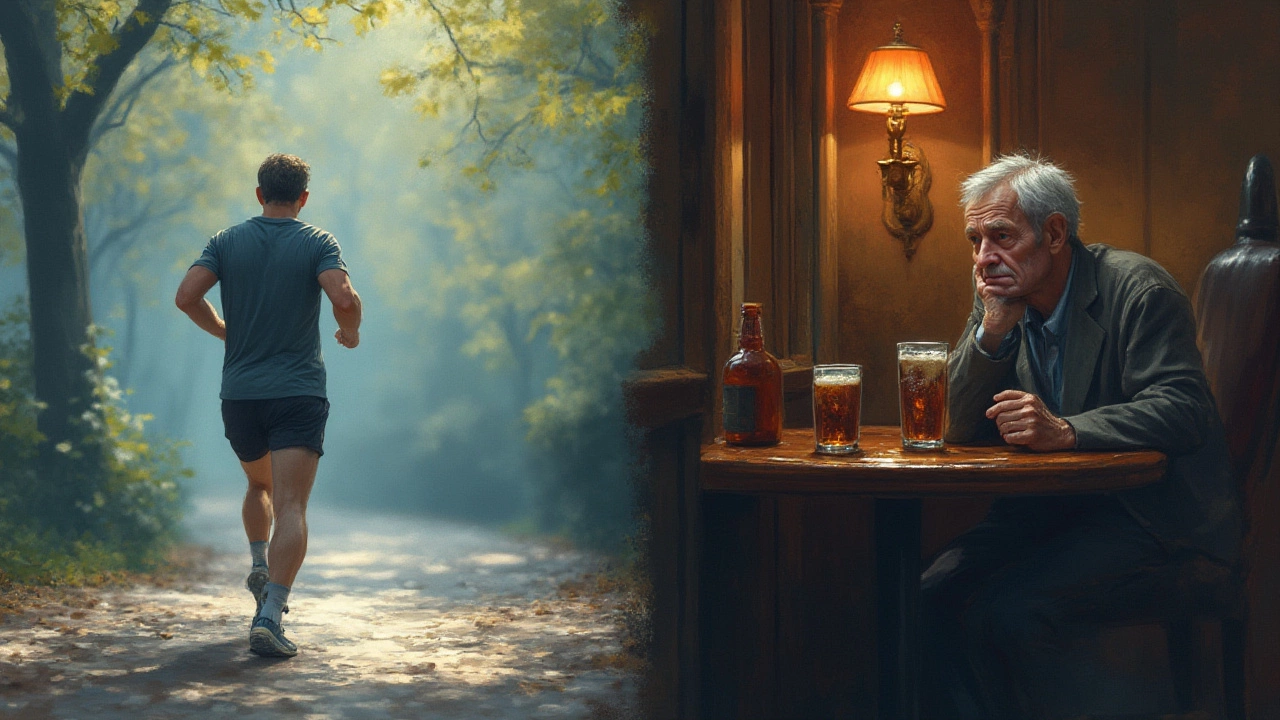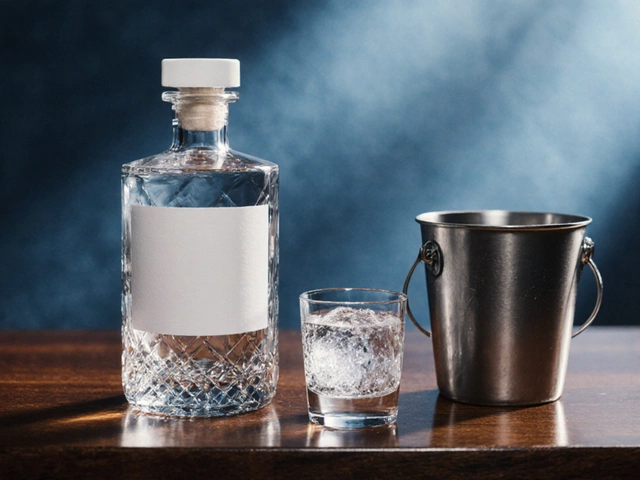Brain and Alcohol: What Every Drinker Should Know
Ever wonder why a night of wine feels different from a night of beer? It’s not just the taste – it’s how the alcohol talks to your brain. Alcohol is a quick‑acting chemical that can change mood, focus, and even the way you remember things. Understanding these effects helps you enjoy a drink without surprising side‑effects.
Short‑Term Brain Changes When You Sip
Within minutes of your first sip, alcohol reaches the brain and starts to slow down nerve signals. You might feel more relaxed, talkative, or a bit clumsy. That’s because alcohol boosts a neurotransmitter called GABA, which calms brain activity, while it blocks glutamate that normally keeps you alert. The result is a gentle buzz that can make social situations easier, but it also reduces reaction time and sharp thinking.
If you keep drinking, these effects get stronger. Memory formation becomes harder, so you might forget small details of the evening. This is why a “blackout” can happen after a few drinks – the brain simply can’t store new memories while the alcohol is high. It doesn’t mean you’re drunk after every drink; it’s about how much and how fast you consume.
Long‑Term Effects: What Happens When Drinking Becomes Habitual
Regular drinking, even in moderate amounts, can slowly reshape brain chemistry. Studies show that frequent alcohol use can shrink parts of the brain involved in learning and decision‑making, like the hippocampus and prefrontal cortex. You might notice slower problem‑solving or a reduced ability to plan ahead.
On the flip side, some research points out that light to moderate drinking – think a glass of wine a day – might have a protective effect on certain brain areas due to antioxidants like resveratrol. The key word is “moderate.” More than that, and the risks outweigh any potential benefit.
So, what can you do to keep your brain happy? First, pace yourself. Sipping a drink over an hour gives your liver time to process the alcohol, keeping blood‑alcohol levels lower. Second, eat before you drink. Food slows absorption, meaning the brain sees a gentler rise in alcohol. Third, stay hydrated – water helps flush out toxins and reduces next‑day fog.
If you’re curious about how specific drinks affect you, try a simple experiment. Choose two evenings: one with a low‑alcohol beer (around 3% ABV) and another with a stronger wine (12‑14% ABV). Keep the serving size the same (like a 150‑ml glass). Notice any differences in how you feel, how clear your thoughts stay, and how quickly you get sleepy. This personal data can guide you toward the drinks that suit your brain best.
Remember, your brain is the engine of every decision you make, so treating it with respect pays off. Enjoying a drink doesn’t have to mean sacrificing mental sharpness. By staying aware of the short‑term buzz, watching long‑term trends, and using practical tips, you can raise a glass without worrying about hidden brain costs.
Explore what really happens to your body after 20 years of drinking. Find out how alcohol impacts your organs, brain, and daily life—plus tips to reverse the damage.
View Details

